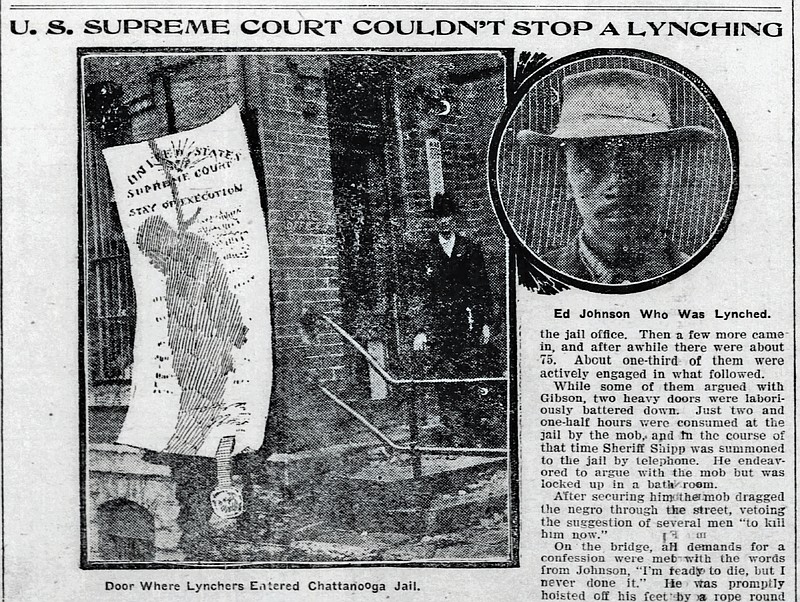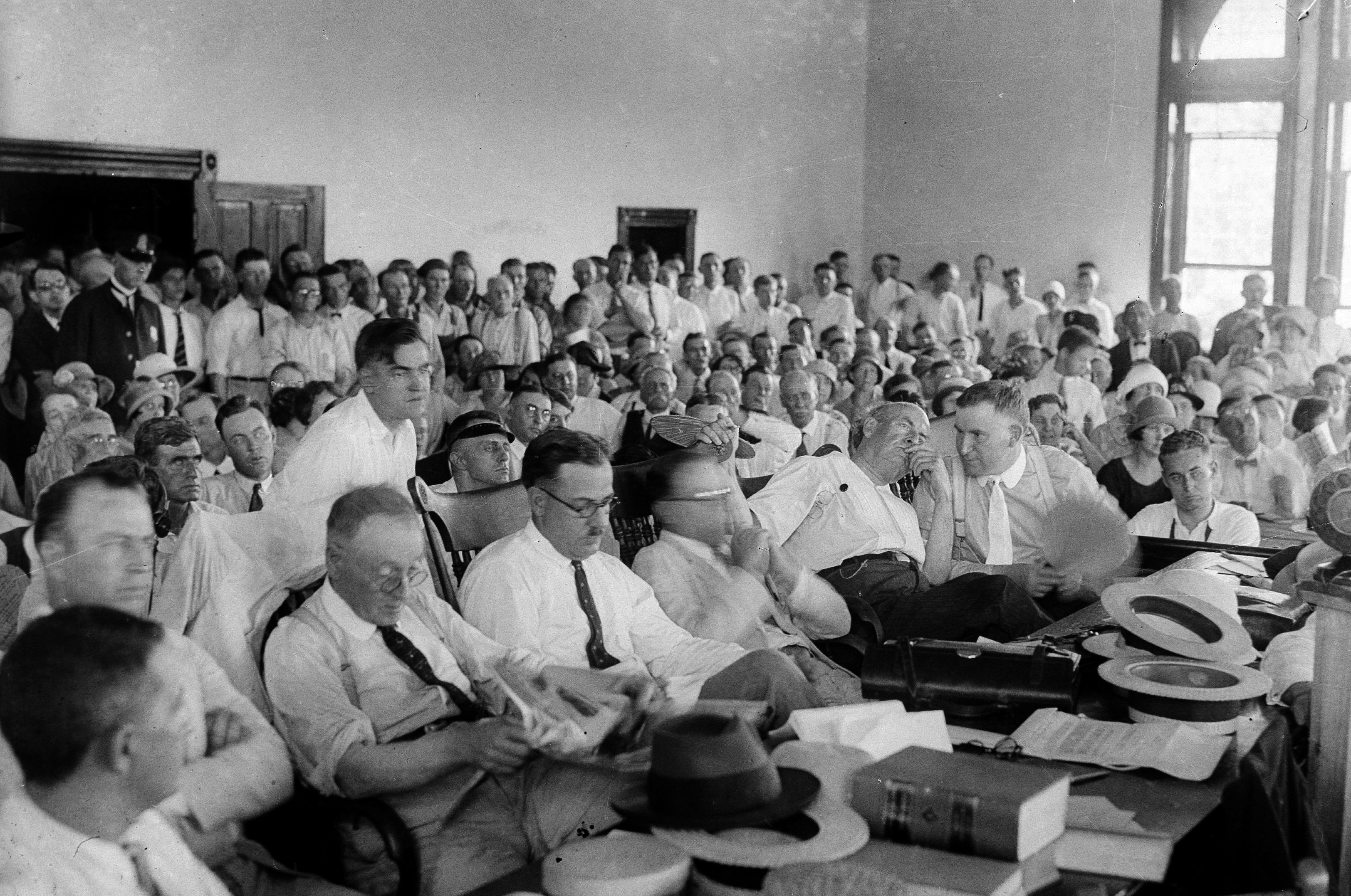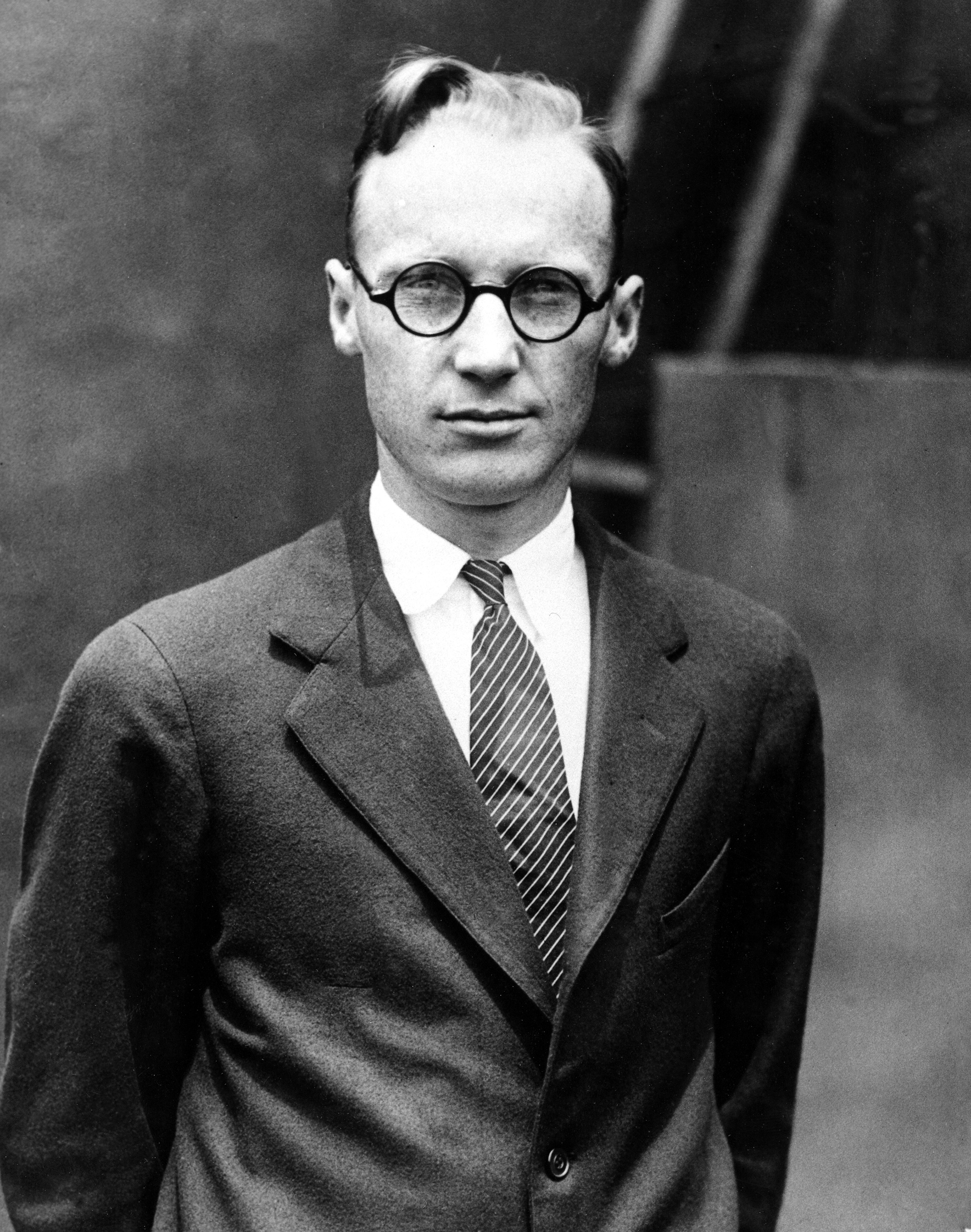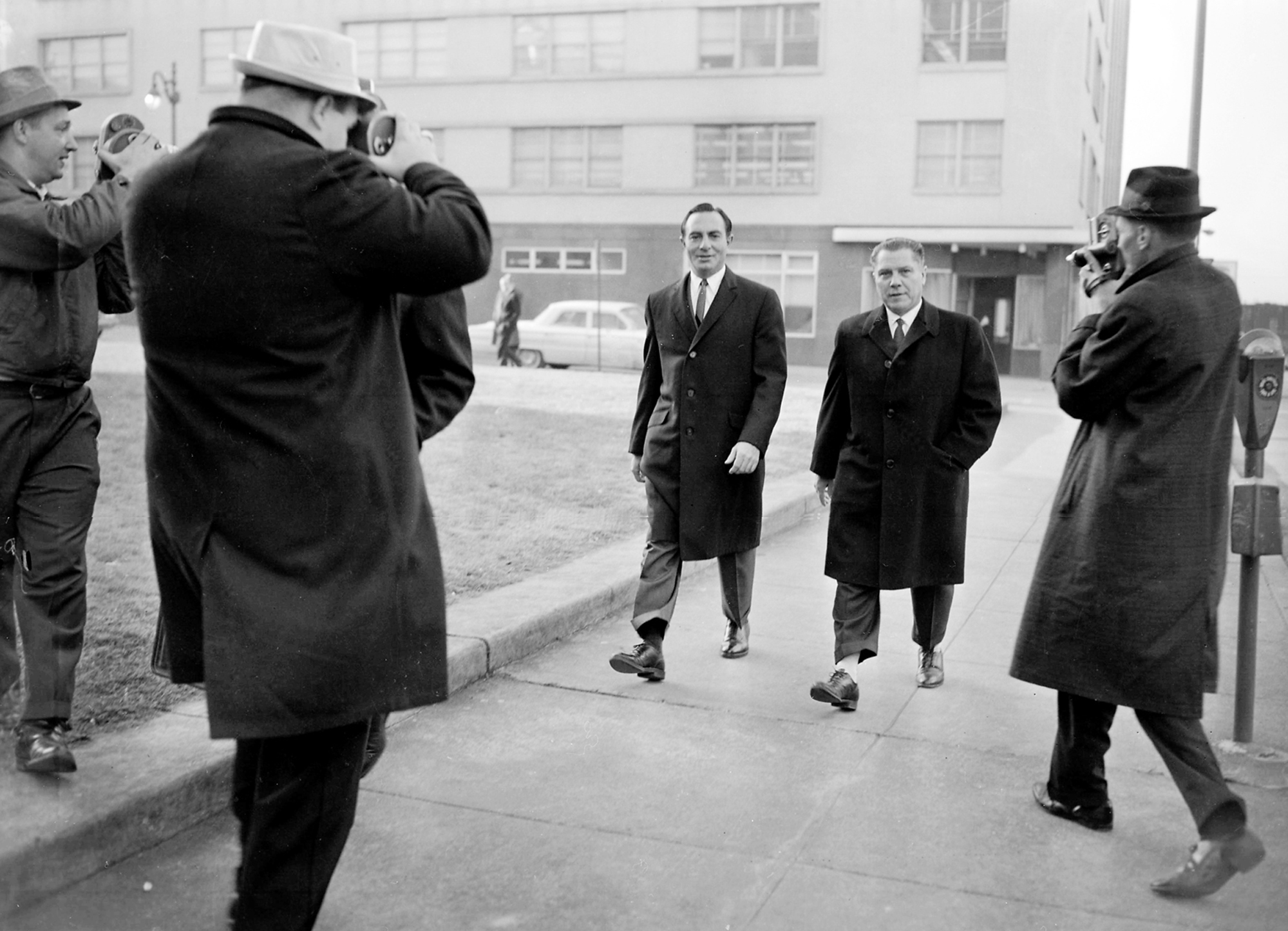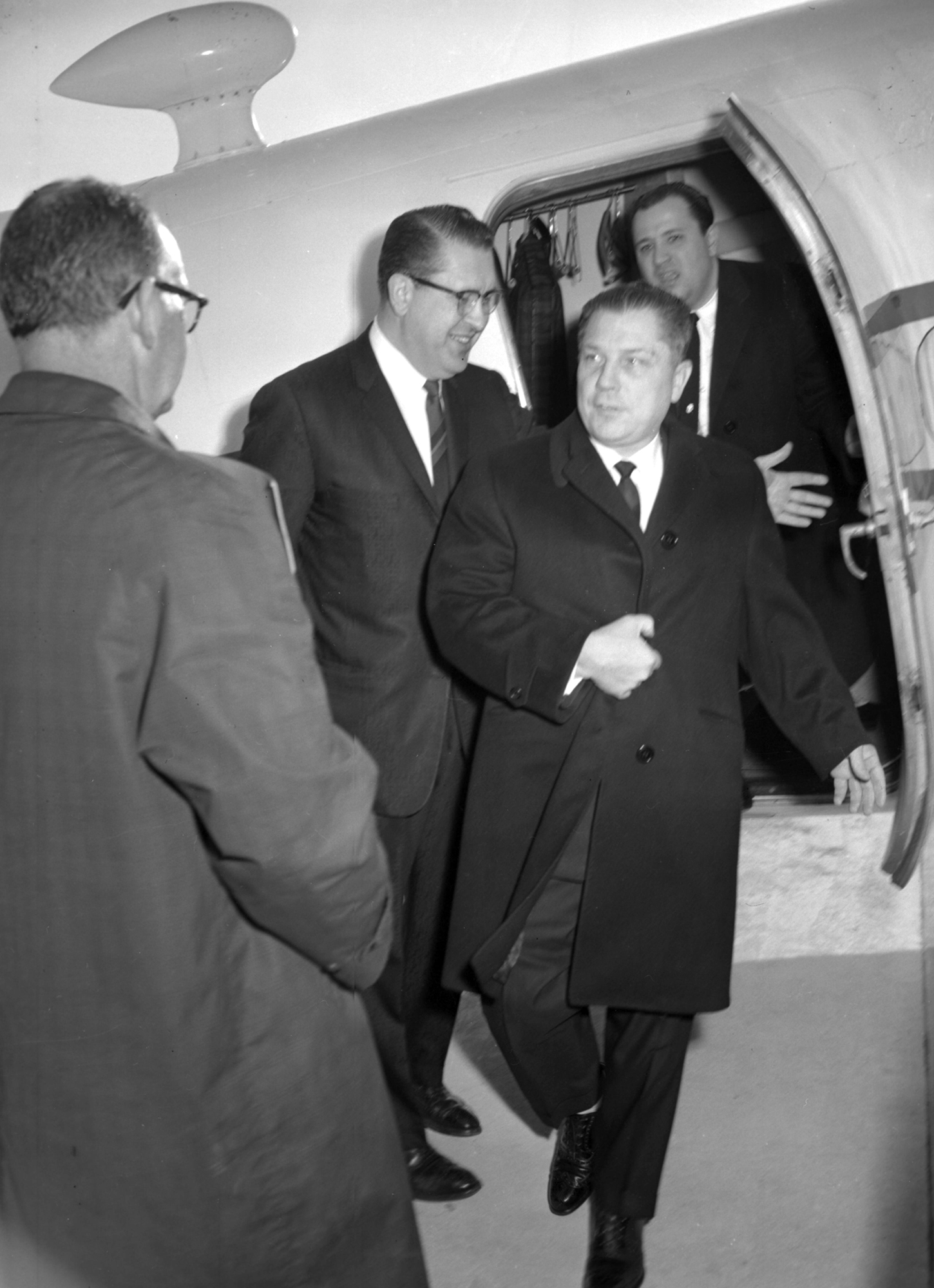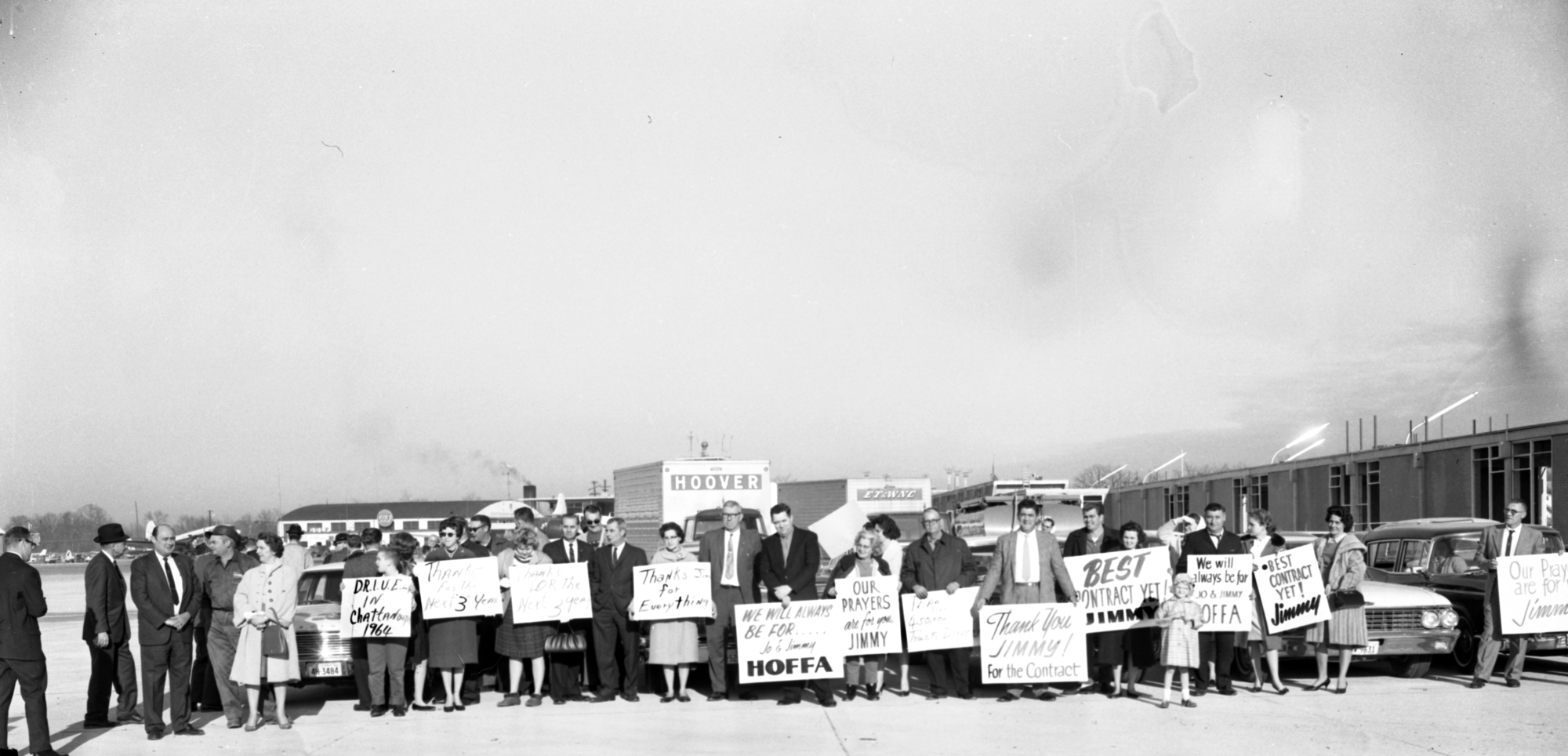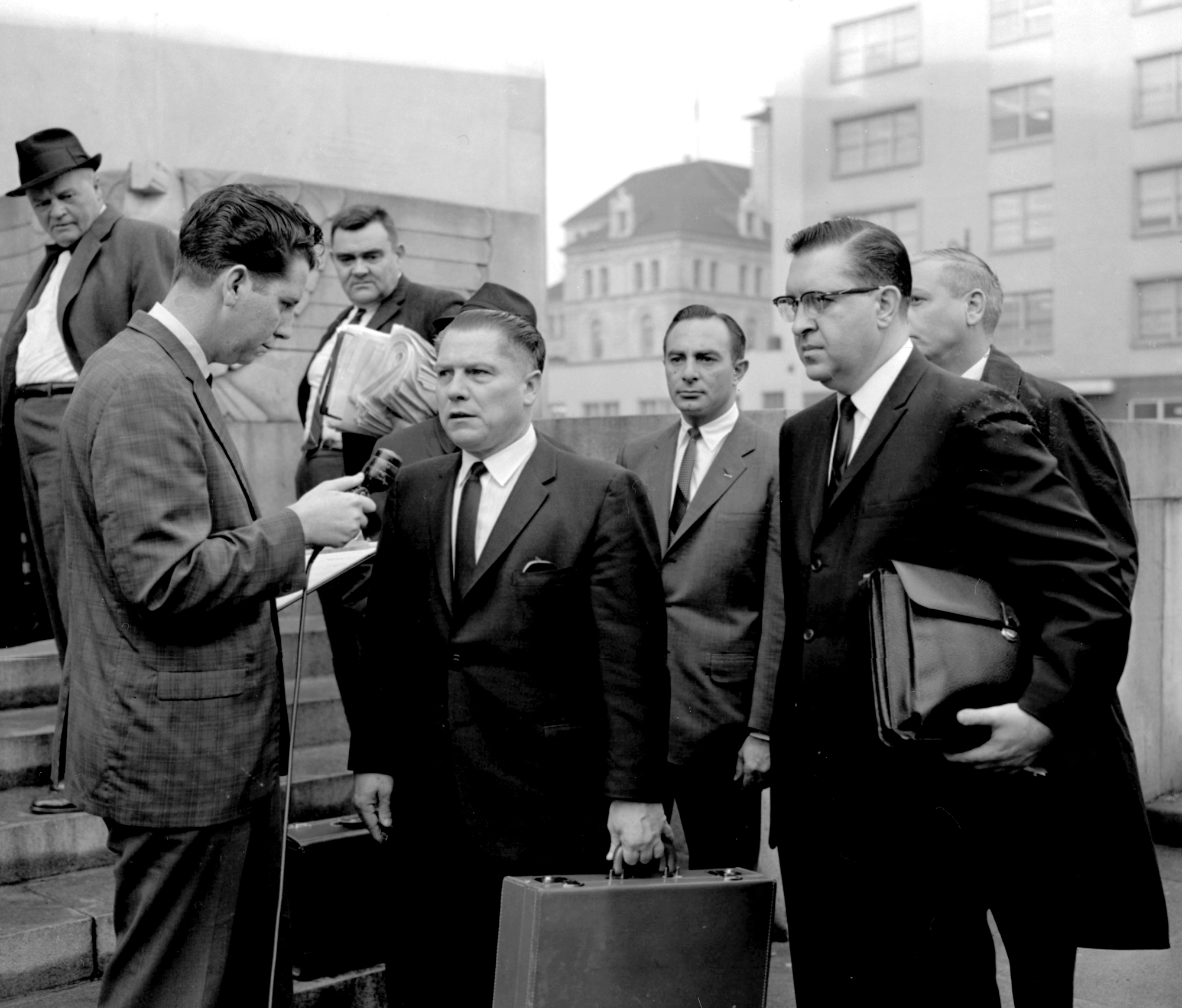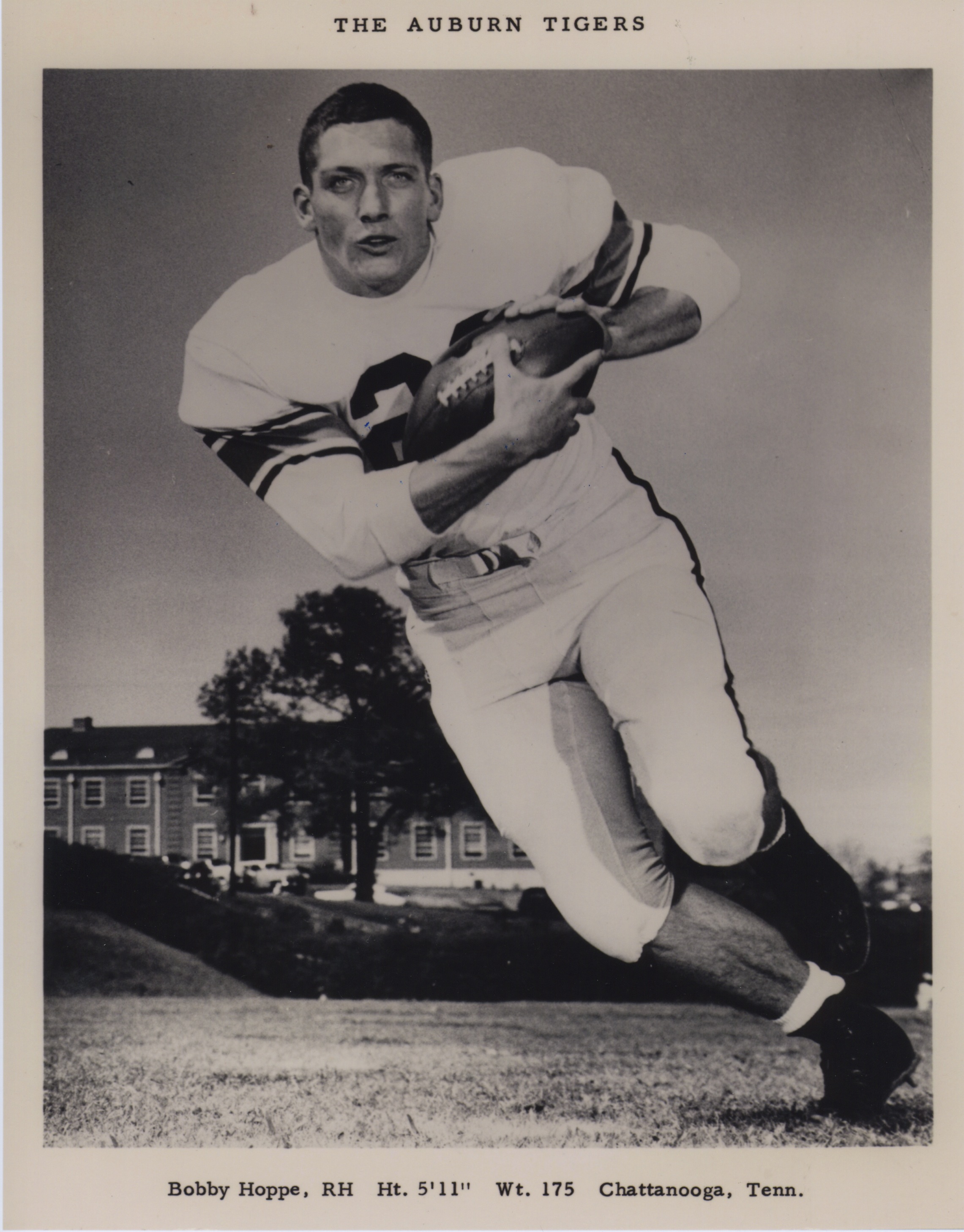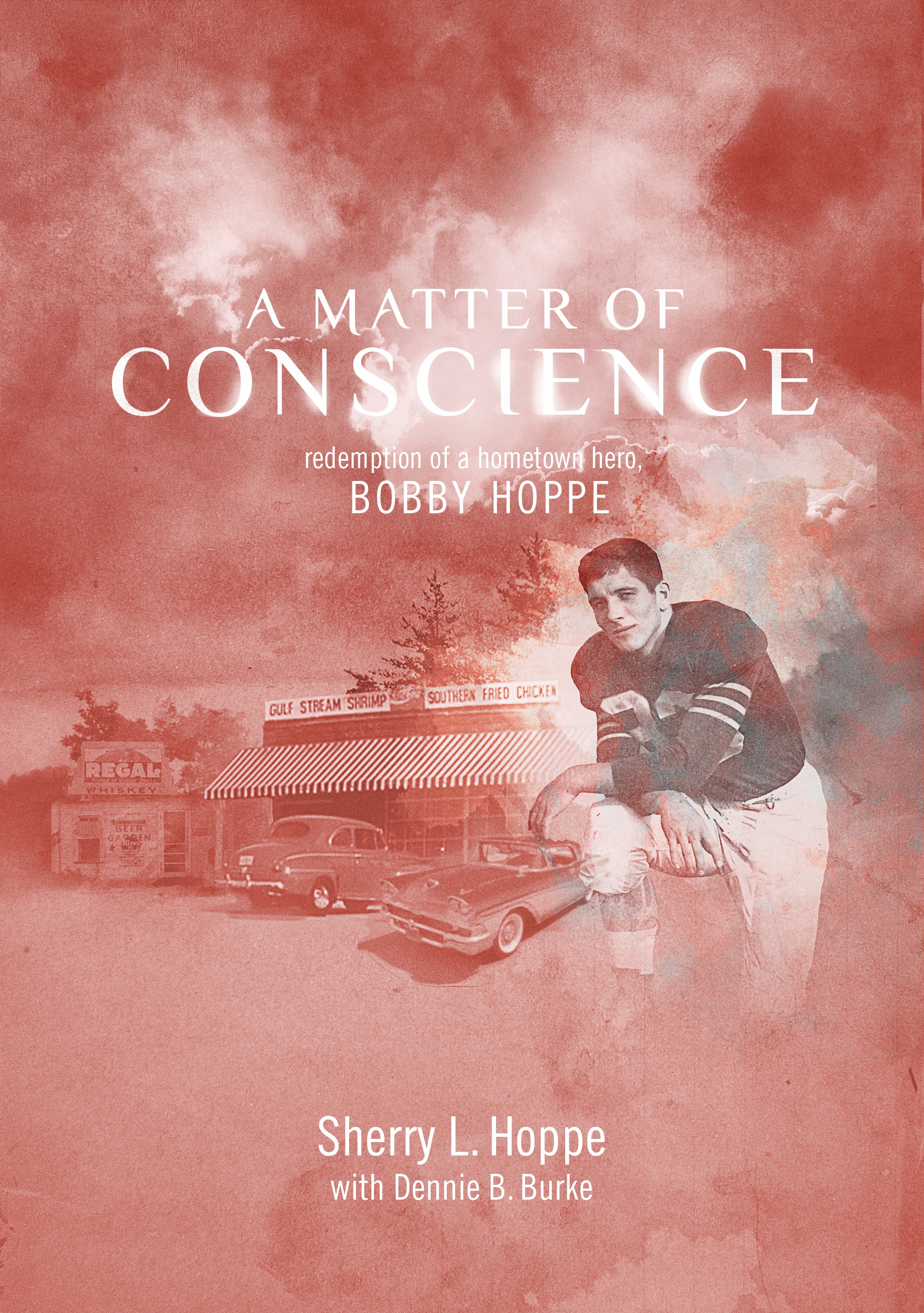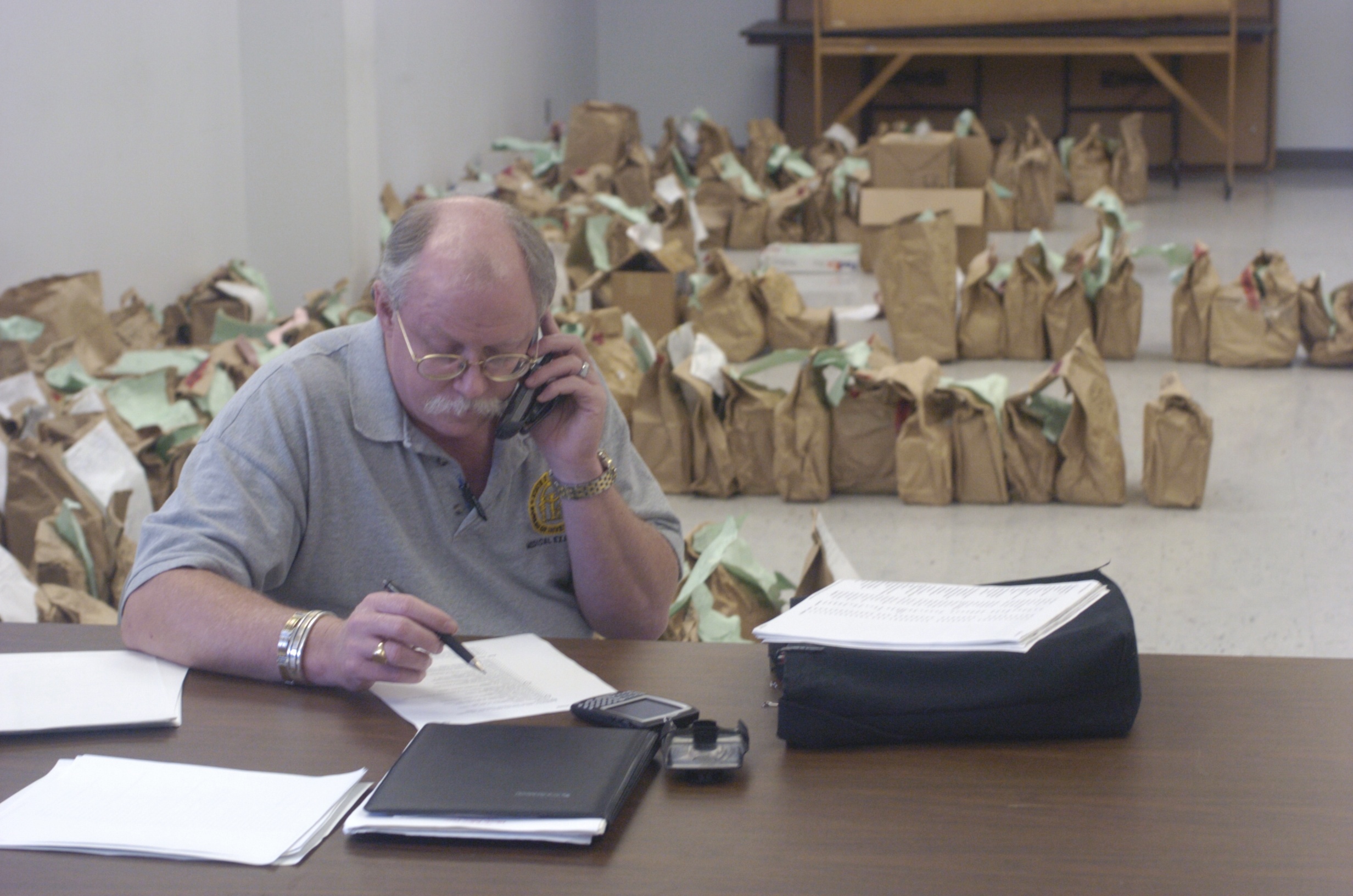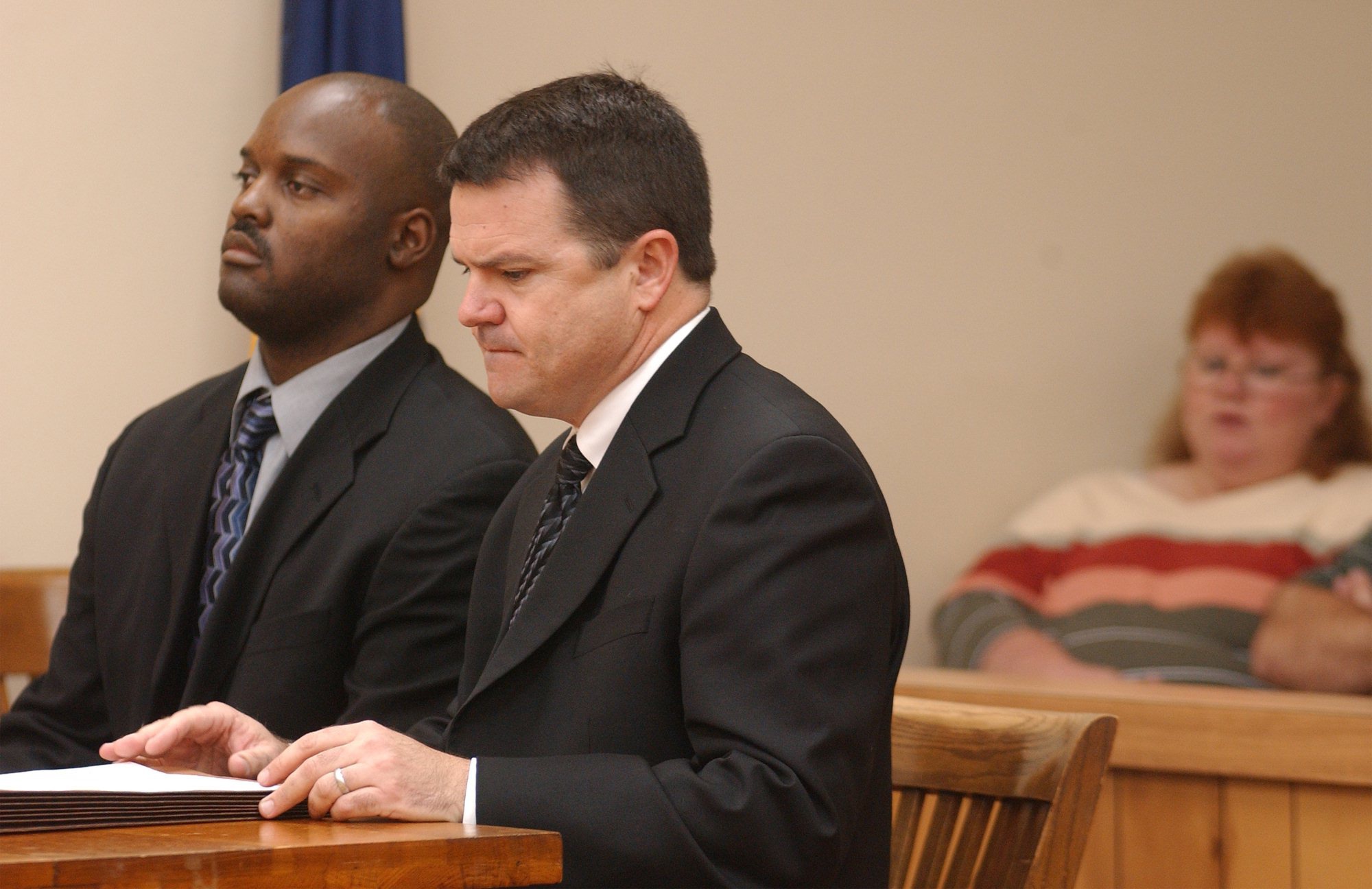1906 - Ed Johnson
Ed Johnson was murdered by an angry mob in his own hometown of Chattanooga. Johnson, a Black man, had been accused of raping Nevada Taylor, a white woman. Within days of the incident, Johnson was put on trial, where a jury found him guilty, and he was sentenced to death. His court-appointed attorneys opted not to fight for an appeal, two local Black attorneys, Styles Hutchens and Noah Parden, chose to take the case on and were able to persuade the U.S. Supreme Court to grant a stay of execution. But a group of angry local citizens decided to take matters into their own hands. The mob broke into the jail where Johnson was being held, abducted him, then hanged him over the Walnut Street Bridge. One hundred fifteen years later, in September of 2021, the City of Chattanooga offered its public apology for the matter, installing a statue of Johnson and his attorneys on the southern side of the Walnut Street Bridge.
1925 - The Scopes Trial
The Scopes Trial, otherwise known as "The Monkey Trial," marked a crucial moment in the long-standing debate between science and religion. High school biology teacher, John Scopes was accused of violating the Butler Act, which prohibited the teaching of the theory of evolution in public schools. Held in Dayton, Tennessee, the trial caused much controversy and drew international media attention. Ultimately, Scopes was found guilty and fined $100, although the verdict was later overturned. To this day, the Scopes Trial is studied as an historic event that changed how science is taught in the American school system.
1964 - Jimmy Hoffa: Federal trial for jury tampering
Maybe the most talked-about Chattanooga trial of all time was that of James "Jimmy" Riddle Hoffa, who was president of the International Brotherhood of Teamsters at the time. Hoffa had gone on trial during the 1950s for charges such as fraud, racketeering, illegal loans and jury tampering -- and always managed to avoid prosecution. But during a trial in Nashville in 1962, the case ended in a hung jury. Authorities alleged that Hoffa's team had bribed jurors, which created the case for a new indictment in a new trial, this time set in Chattanooga. As a result of the Chattanooga trial, Hoffa was convicted on four of the 20 counts against him and sentenced to eight years in jail. He appealed the conviction up to the U.S. Supreme Court, but was ultimately sent to prison in 1967, which ended his reign as head of the Teamsters. In 1972, then-President Richard Nixon released him; and in 1975, Hoffa disappeared. His body has never been found.
1988 - Football Star Robert "Bobby" Hoppe
Bobby Hoppe was a local football star who played at Chattanooga's Central High School, then later on a championship team Auburn University. But he is also remembered for the secret he kept for 30 years of his life. In 1957, Hoppe was involved in a shooting incident involving Teddy Donald Hudson, who was his sister's ex-boyfriend and a known whiskey runner. The two were involved in an aggressive car chase, when Hoppe shot and killed Hudson. Hoppe wasn't indicted for the shooting until 1987. During trial, which attracted national attention, Hoppe made his first public admission of doing the shooting, but claimed it was in self-defense. The trial ended in a hung jury. About a month later, the district attorney's office announced they would not retry the case.
2002 - Tri-State Crematory
It's been more than 20 years now since officials discovered 334 bodies strewn about the grounds of Tri-State Crematory in Noble, Georgia. Rather than being cremated, the bodies had been placed in holes or outbuildings. Some had been left in their caskets. Ray Brent Marsh, then the operator of the family-owned crematory, was charged by a grand jury in 2003 with 787 felony counts -- 179 counts of abuse of a corpse, 439 counts of theft, 122 counts of burial service fraud and 47 counts of making false statements. The case drew international attention, and his trial ended with a plea agreement of 75 years, with the first 12 in prison and the remainder to be served on probation. Marsh finished serving his prison term in 2016. Now a pastor, he appeared in Walker County Superior Court this past April in a bid to have his probation terminated early, per terms of a bill passed by the Georgia General Assembly and signed into law in 2021 by Gov. Brian Kemp. Walker County Superior Court Judge Don Thompson denied Marsh's request.
READ MORE
* Chattanooga Bar Association supporting the local legal community for 125 years
* Civil rights figures Reena Evers-Everette, Jerry Mitchell to speak in Chattanooga in September
